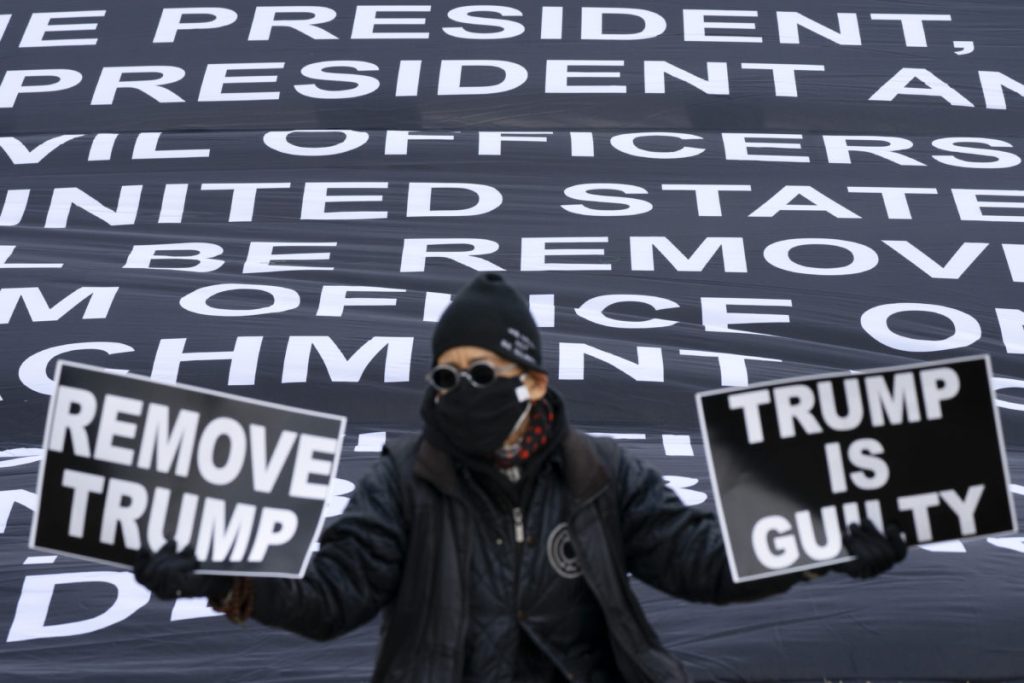By Peter Bergen
CNN National Security Analyst
(CNN) On Wednesday, January 6, a pro-Trump mob assaulted the Capitol, breaking through windows and doors, resulting in five deaths. They also interrupted the election certification of President-elect Joe Biden and the peaceful transfer of power that has been the hallmark of

American democracy for more than two centuries.
These domestic terrorists attacked the great symbol of American democracy and they should be held accountable — and so should their Inciter-in-Chief, President Donald J. Trump.
Let’s start with the President. There are limits to the First Amendment. It is a crime to incite or solicit others to commit crimes if you have reason to believe they may actually carry out those crimes. The relevant statute is U.S. Code, Title 18, Section 373.
Take Zachary Chesser, who is serving a long prison sentence, in part because he incited violence against the creators of the cartoon show “South Park” on a jihadist forum in 2010 after they portrayed the Prophet Mohammed in an unflattering light.
To a crowd of thousands of his supporters, some wearing body armor and many wearing quasi-military outfits, on Wednesday Trump spouted a geyser of baseless conspiracy theories about his loss in the presidential election.
Trump then urged the mob to go to the Capitol, saying, “You’ll never take back our country with weakness. You have to show strength, and you have to be strong.” The mob, unfortunately, took the President at his word.
The striking parallels between the assaults on Charlottesville and the Capitol
The striking parallels between the assaults on Charlottesville and the Capitol
Trump’s personal lawyer, Rudy Giuliani, who has lost the moral standing he had as mayor of New York during the 9/11 attacks, also incited the pro-Trump mob on Wednesday, telling them they needed to contest the election results with “trial by combat.” Giuliani should also be charged with incitement and/or solicitation of violence.
The domestic terrorists who assaulted the Capitol should be prosecuted to the full extent of the law, especially if investigators find that there were leaders of the mob who conspired to commit these crimes. Conspiracy laws are often used in jihadist terrorism cases and result in lengthy prison terms.
As we approach the 20th anniversary of 9/11, Americans are long overdue to understand the reality that domestic, right-wing terrorists now threaten the United States far more than foreign terrorist organizations like al-Qaeda and its affiliates, which have not carried out any successful terrorist attacks in the US since 9/11. (There remains some debate about whether al-Qaeda’s affiliate in Yemen actually directed the terrorist attack in Pensacola, Florida, in 2019 in which three US sailors were killed by a Saudi military officer, or whether the Saudi officer simply apprised al-Qaeda of his plot.)
Meanwhile, according to the think tank New America, far-right terrorists have killed 114 people in the US since 9/11, while jihadist terrorists have killed 107, and a far-left terrorist killed one person.
The US should wage a real campaign against far-right terrorism, as it did against jihadist terrorism in the years after 9/11. There is no federal domestic terrorism statute since that charge is exclusively related to individuals who have some association with a foreign terrorist organization. But now that Congress has been on the receiving end of a domestic terrorism assault, surely it is time for congressional action to implement such a statute.
A quarter of a century ago, in his book “Amusing Ourselves to Death,” the critic Neil Postman warned Americans, “Our politics, religion, news…have been transformed into congenial adjuncts of show business, largely without protest or even much popular notice. The result is that we are a people on the verge of amusing ourselves to death.”
President Trump’s antics stopped being amusing some time ago, but now they also have had lethal consequences. It’s long past time for him, his family and his entourage to depart for Mar-a-Lago, where hopefully they will all have plenty of time to consult with their lawyers about criminal prosecutions that may proliferate against Trump once he no longer has the shield of the presidency.
Peter Bergen is CNN’s national security analyst, a vice president at New America and a professor of practice at Arizona State University. He is senior editor of the Coronavirus Daily Brief and author of the new book “Trump and His Generals: The Cost of Chaos.” The opinions expressed in this commentary are his own. View more opinion on CNN.


